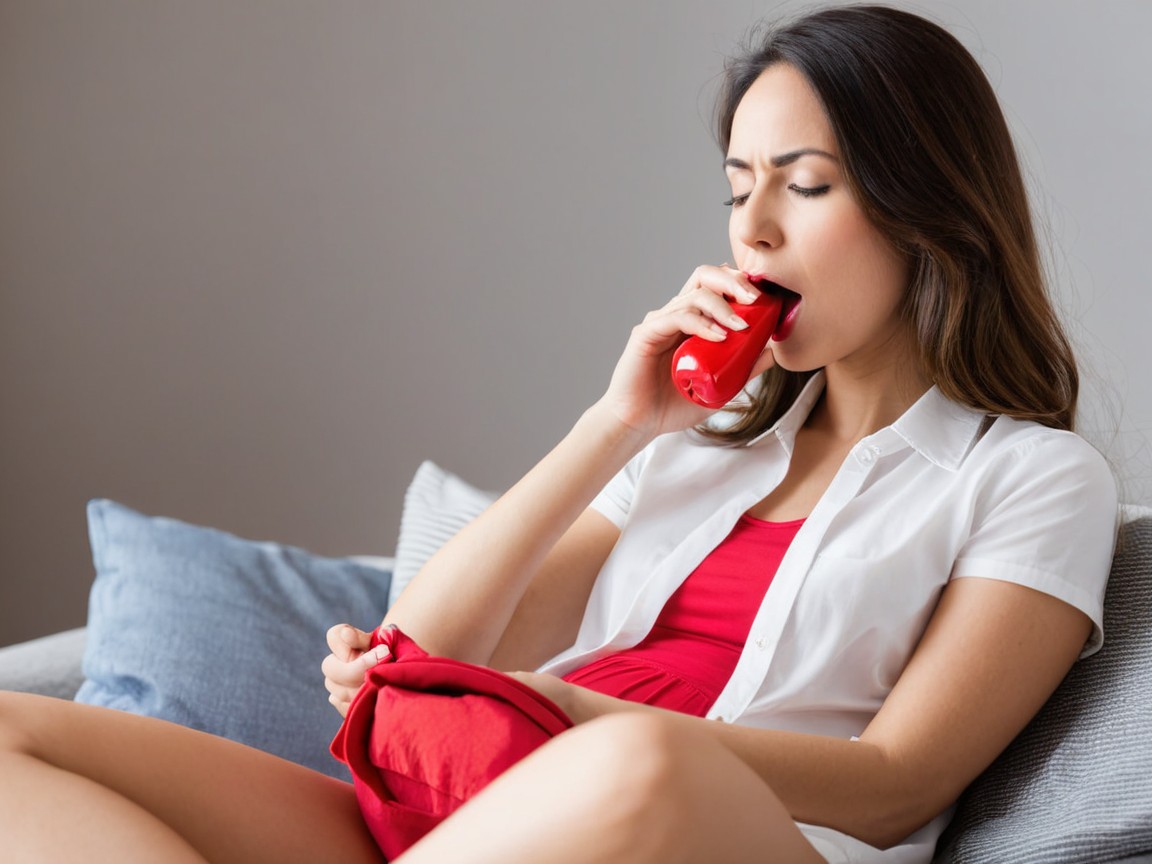Menstrual issues are often thought of as conditions that require medical intervention, but can lifestyle adjustments help manage these symptoms?
The answer is yes—how lifestyle can have an effect on your menstrual symptoms is becoming more clear. While lifestyle changes can’t cure medical conditions like Heavy Menstrual Bleeding (HMB), Polycystic Ovary Syndrome (PCOS), or endometriosis, they can help ease certain discomforts such as bloating, fatigue, or painful menstrual cramps.
Adjusting your exercise habits and diet can often alleviate these symptoms.
The Effect of Movement on Menstrual Symptoms

You might think resting when experiencing menstrual discomfort is the best option. However, how lifestyle can have an effect on your menstrual symptoms shows that light physical activity can improve your well-being. While lying on the couch may seem tempting, simple exercises like walking, swimming, or yoga can make a big difference. These activities don’t require a major commitment; just 30 minutes a day can improve blood circulation, relieve muscle tension, and reduce cramps.
Moderate exercise is particularly effective. While high-intensity sports and endurance training may stress your body, causing disruptions in your menstrual cycle, moderate exercises such as walking or gentle yoga can improve blood flow and relax the muscles, including those in the abdomen, lower back, and legs—common problem areas during your period. Furthermore, physical activity releases endorphins, the body’s natural painkillers, which can reduce the severity of menstrual cramps. Exercise also promotes the production of serotonin, a neurotransmitter that enhances mood and helps regulate emotions. This can be especially helpful if you’re trying to manage irritability or cravings associated with your period.
Food That is Good for Your Body During Your Period
Food plays a crucial role in how lifestyle can have an effect on your menstrual symptoms. It’s common to crave unhealthy snacks before your period, but consuming foods high in sugar, fat, salt, caffeine, and alcohol may worsen your symptoms. For instance, salt can cause fluid retention, leading to bloating and sore breasts. Instead, increase your water intake or drink herbal teas that help reduce bloating.
Caffeine, often consumed to combat fatigue, can raise blood pressure and interfere with your sleep, making you feel even more tired and irritable. It’s better to opt for foods that support your energy levels, such as those rich in iron. Heavy menstrual bleeding can lead to iron loss, which might make you feel weak and listless. Including iron-rich foods like lean meats, legumes, leafy greens, and dried fruits can help restore your iron levels. Pairing these with vitamin C-rich foods, such as citrus fruits or bell peppers, enhances iron absorption.
If you’re dealing with conditions like PCOS, weight management becomes an important part of your diet strategy. A balanced diet, low in refined carbohydrates, and high in fiber, healthy fats, and proteins can reduce the risk of complications related to PCOS. Reducing the intake of red meat, refined sugars, and soy-based foods has been linked to symptom relief for women with endometriosis.
Endometriosis Dietary Recommendations
While more research is needed to understand the full impact of diet on menstrual conditions like endometriosis, some studies suggest that specific dietary changes can help alleviate symptoms. How lifestyle can have an effect on your menstrual symptoms, particularly for women with endometriosis, may be influenced by avoiding inflammatory foods like red meat, refined sugars, and soy, which are thought to trigger flare-ups. Adopting a gluten-free or low-FODMAP diet has shown promising results for some women with endometriosis, as these changes may reduce gastrointestinal issues associated with the condition.
The Endometriosis Centre of the Amsterdam UMC has conducted studies that suggest dietary interventions can improve the quality of life for women with endometriosis. One study revealed that more than 55% of participants noticed symptom relief after adjusting their diet. While it’s clear that diet plays a role, it’s essential to remember that factors like stress, smoking, and obesity also contribute to menstrual issues. Eating healthily, however, is always a good idea to minimize the severity of symptoms and support overall health.
A healthy diet typically includes as few processed foods and refined sugars as possible. Instead, focus on a variety of vegetables, fruits, whole grains, lean proteins, and healthy fats. Drinking at least 1.5 liters of fluids a day—water or herbal teas—can also support your body’s natural processes during your period.
Looking After Your Mental Health Whilst on Your Period
When considering how lifestyle can have an effect on your menstrual symptoms, it’s crucial to also look at the mental aspect. Chronic stress can disrupt your hormonal balance, leading to worsened menstrual symptoms. If you’re experiencing cramps or fatigue, it’s important to rest, take a warm bath, or use a hot water bottle on your stomach or lower back. Stress reduction practices like yoga or meditation can be very beneficial during your period.
Taking care of your mental health is as important as your physical health when managing menstrual discomfort. By practicing self-care and relaxation techniques, you give your body the chance to heal and manage discomfort more effectively. Listen to your body and prioritize your health—this is the first step in making how lifestyle can have an effect on your menstrual symptoms work for you.
When to Consult a Doctor
Lifestyle changes can go a long way in improving menstrual symptoms, but sometimes, they may not provide enough relief. If you find yourself constantly adjusting your daily activities to accommodate your period or experiencing severe symptoms that don’t improve, it’s important to consult with a healthcare provider. A doctor can help identify any underlying conditions, such as PCOS, endometriosis, or fibroids, that may require medical intervention.
Conclusion
In conclusion, while lifestyle changes cannot cure medical conditions, they can significantly ease common menstrual symptoms. How lifestyle can have an effect on your menstrual symptoms can be seen through the benefits of regular exercise, healthy eating habits, and stress management techniques. Taking small steps to improve your lifestyle could lead to significant improvements in your menstrual health. Follow the Menstrual Cycle Blog to get the pro tips 🙂


1 thought on “How Lifestyle Can Have an Effect on Your Menstrual Symptoms”
Comments are closed.